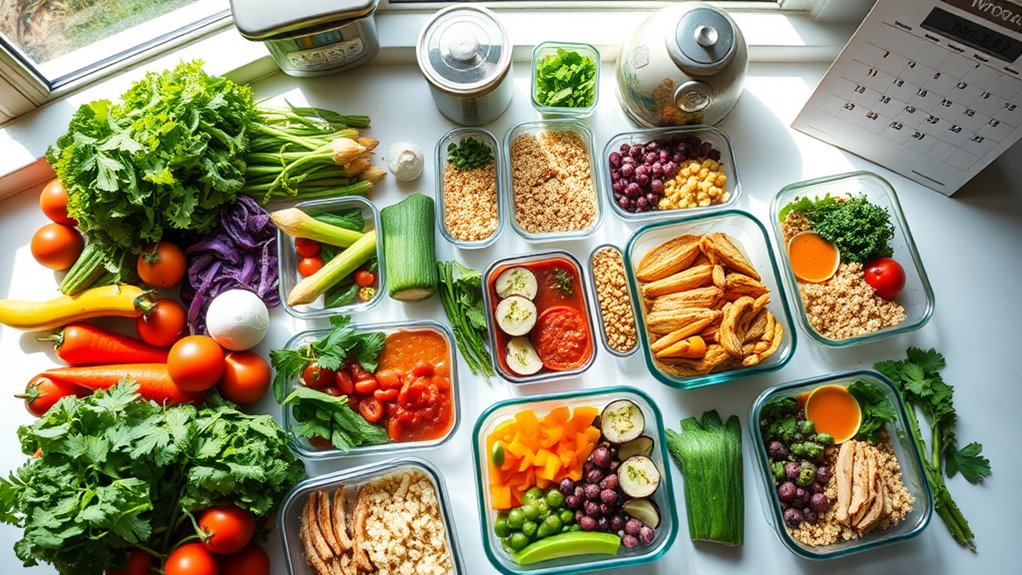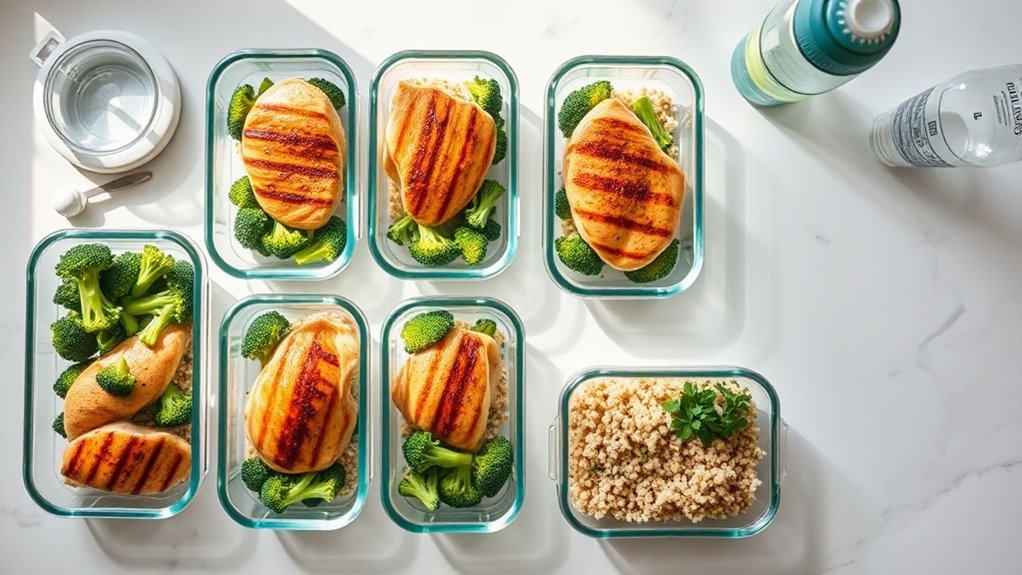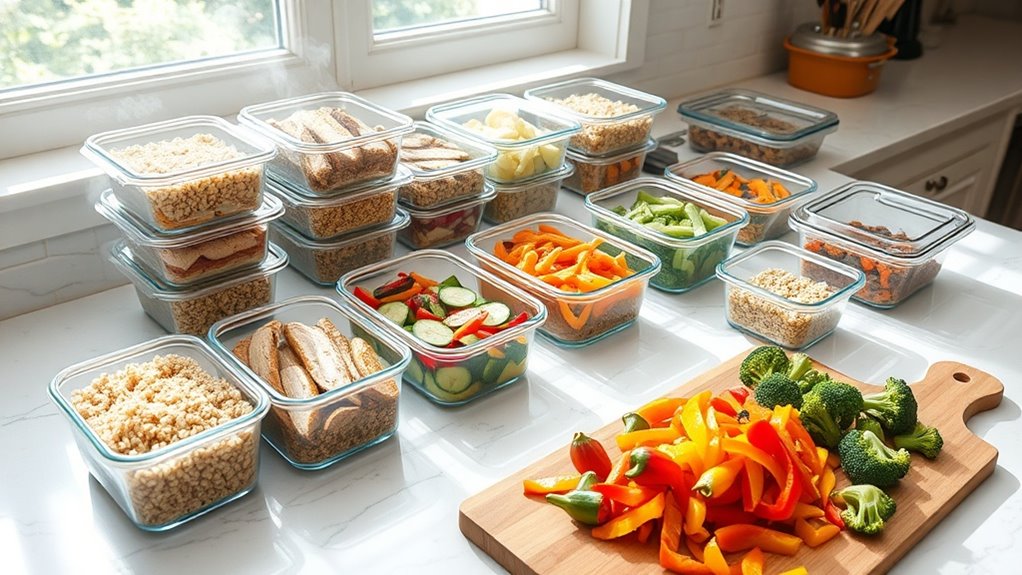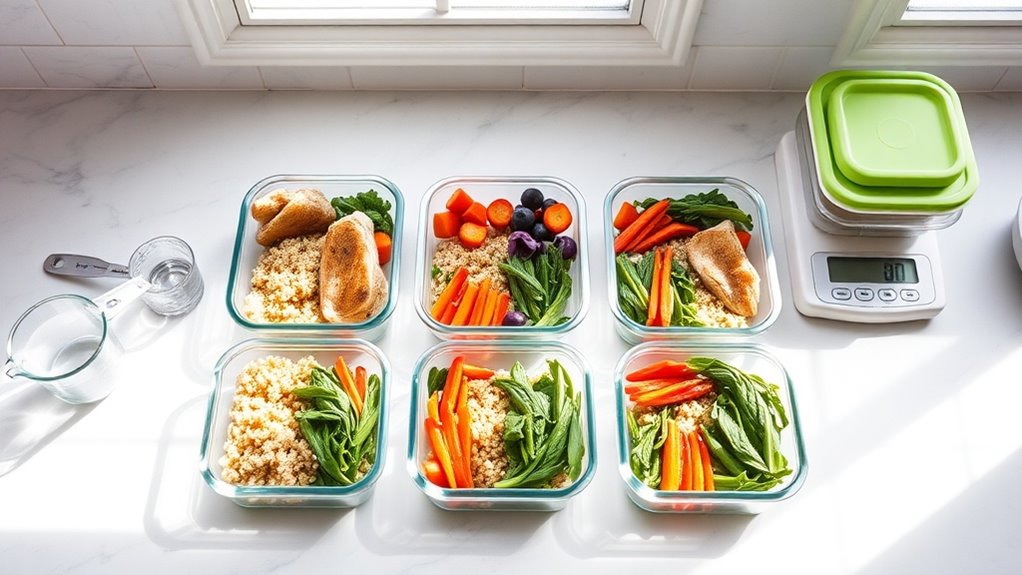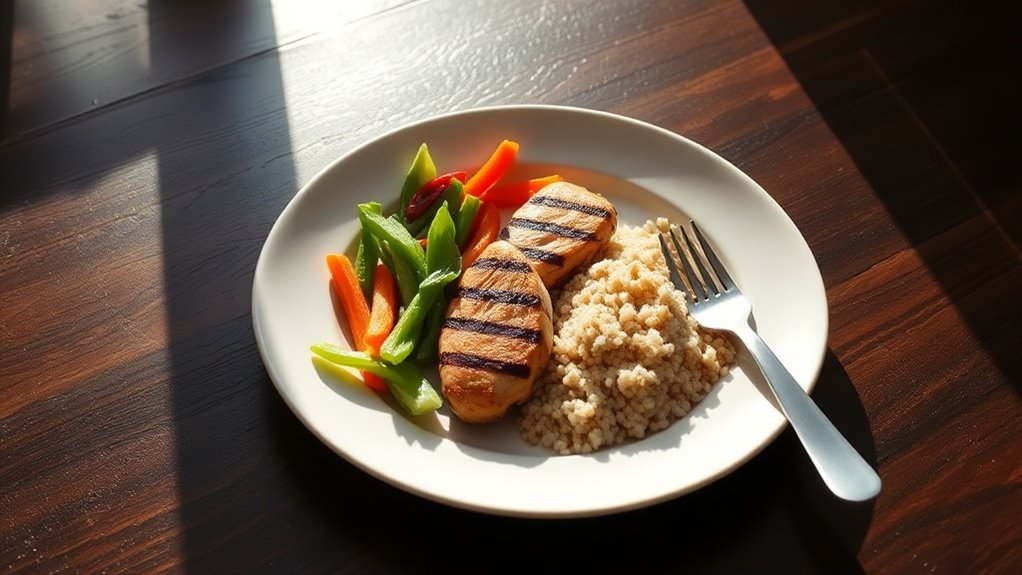How I Plan My Meals So I Don’t Feel Hungry All Day
While some people struggle with constant hunger, others effortlessly maintain energy throughout the day. It’s all about how you plan your meals. By understanding your nutritional needs and building a balanced meal plan, you can enjoy sustained energy without the nagging pangs of hunger. Discovering the right portions and integrating effective snacks can make a significant difference in your daily routine. Let’s explore how to create a satisfying meal strategy that fits your lifestyle.
Understanding Your Nutritional Needs
How do you ensure your meal plan meets your unique nutritional needs? Start by assessing your dietary requirements, considering factors like age, activity level, and health goals. A smart meal structure involves incorporating a variety of food groups to cover essential nutrients. By focusing on whole foods and portion sizes, you’ll create a balanced plan that energizes and supports your overall health. Additionally, understanding the importance of meal timing can help regulate your metabolism and curb hunger throughout the day.
Building a Balanced Meal Plan
After you’ve assessed your nutritional needs, it’s time to build a balanced meal plan that aligns with those goals.
Focus on including a variety of foods: lean proteins, whole grains, healthy fats, and plenty of fruits and vegetables. This combination ensures you get essential nutrients while maintaining energy levels. Additionally, incorporating meal planning into your routine can aid in weight loss success and reduce unhealthy snacking throughout the day.
Don’t forget to consider portion sizes to prevent overeating throughout the day.
Incorporating Snacks Effectively
While snacks can often be seen as guilty pleasures, they actually play a crucial role in a well-rounded meal plan when chosen wisely. Incorporating healthy snacks can keep your energy levels steady and help you avoid overeating during meals.
Consider these options for effective snacking:
- Greek yogurt
- Fresh fruits
- Hummus with veggies
- Nuts and seeds
- Whole grain crackers
Additionally, maintaining a food journal can enhance your healthy snacking habits by increasing your awareness of eating choices and helping you identify patterns in your snacking behavior.
Meal Prepping for Success
To ensure your meal planning is both effective and sustainable, mastering meal prepping is essential.
Start by dedicating a couple of hours each week to prepare your meals in advance. Invest in quality containers for storage, and organize meals by categories. This habit not only saves time but also helps you make healthier choices, ultimately reducing impulsive eating and ensuring you stay satisfied throughout the day. Incorporating meal planning into your routine acts as a roadmap, keeping you on track with your health goals.
Adjusting Portions and Timing
Adjusting portions and timing can significantly impact your meal planning success, as understanding your body’s hunger cues and nutritional needs helps you maintain a balanced diet.
To optimize your meals, consider these strategies:
- Listen to your body’s hunger signals
- Distribute meals throughout your day
- Include protein in every meal
- Adjust portion sizes based on activity level
- Stay hydrated to manage hunger
Incorporating balanced breakfasts into your routine supports your weight loss goals and helps you feel satisfied throughout the day.

